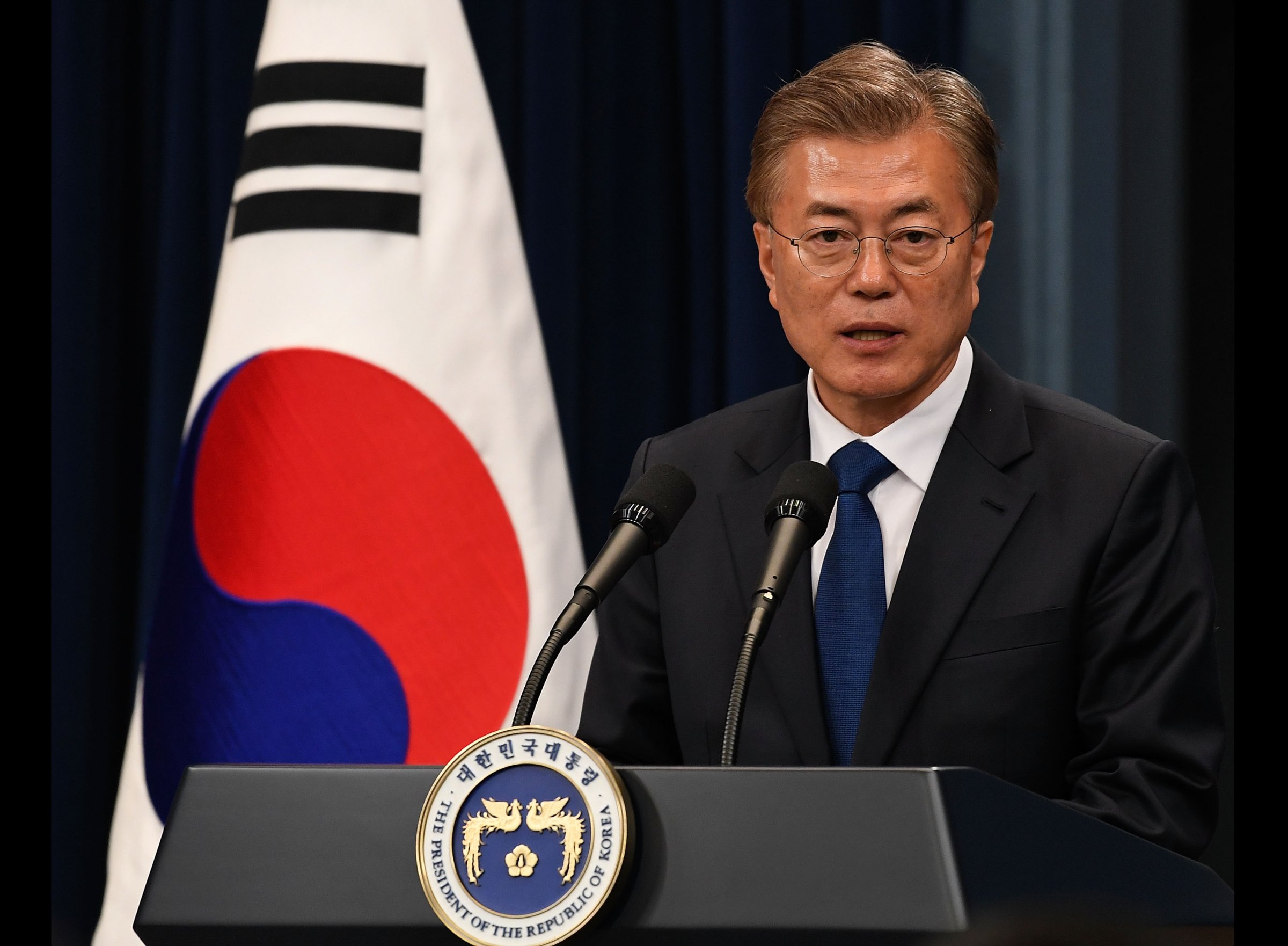
(SEOUL) – South Korean President Moon Jae In’s top security aide left for Washington on Thursday as the new leader tries to reassure Seoul’s main ally he won’t scrap a deal to host a missile defense system that has angered China.
Moon ordered an investigation this week into why his office had not been informed about the deployment of four more launchers for the U.S. Terminal High Altitude Area Defense (THAAD) system, which are being deployed amid a growing threat of missile launches by North Korea.
The new liberal leader had pledged during the recent election campaign that he would review the decision to deploy THAAD, and said it was “very shocking” his office had not been told of the latest deployment while he is preparing for a summit with U.S. President Donald Trump in Washington this month.
The decision to deploy the system in South Korea was made by Moon‘s conservative predecessor Park Geun-hye, who was impeached and thrown from office in a corruption scandal that engulfed South Korea’s business and political elite.
“My order for a probe on THAAD is purely a domestic measure and I want to be clear that it is not about trying to change the existing decision or sending a message to the United States,” Moon told visiting U.S. Senator Dick Durbin late on Wednesday.
Read More: Moon Jae In: The Man Who Wants to Reason with North Korea
The remarks were Moon‘s first clear indication that he does not intend to stop the deployment, which has drawn angry protests from China, South Korea’s biggest trading partner.
Chung Eui-yong, Moon‘s national security adviser, also denied that the controversy over the THAAD deployment would have a negative impact on the summit between Moon and Trump.
“We’ve sufficiently explained that this has nothing to do with our alliance,” Chung told reporters before his departure.
Chung said he would meet Trump’s national security adviser, H.R. McMaster, and finalize the agenda for the summit.
The presidential Blue House said on Wednesday the Defense Ministry had intentionally omitted details about the THAAD battery in a report made to Chung last week, when the government was preparing for the summit.
Moon took office on May 10 without a transition period because a snap presidential election was held just two months after Park was ousted.
He inherited her defense minister, along with the rest of the cabinet, and has yet to name his own.
The THAAD battery was initially deployed in March in the southeastern region of Seongju with just two of its maximum load of six launchers to counter the North Korean missile threat.
North Korea has conducted three ballistic missile tests since Moon took office, maintaining its accelerated pace of missile and nuclear-related activities since the beginning of last year in defiance of U.N. sanctions and U.S. pressure.
The Pentagon said it had been “very transparent” with South Korea’s government about the THAAD deployment.
Moon‘s decision to order an investigation into the THAAD deployment came amid signs of easing tensions between South Korea and China, which is North Korea’s sole major diplomatic ally.
China says the THAAD system will do little to deter the missile threat from North Korea, while allowing the U.S. military to use its radar to look deep into its territory and at its own missile systems.
More Must-Reads from TIME
- Why Trump’s Message Worked on Latino Men
- What Trump’s Win Could Mean for Housing
- The 100 Must-Read Books of 2024
- Sleep Doctors Share the 1 Tip That’s Changed Their Lives
- Column: Let’s Bring Back Romance
- What It’s Like to Have Long COVID As a Kid
- FX’s Say Nothing Is the Must-Watch Political Thriller of 2024
- Merle Bombardieri Is Helping People Make the Baby Decision
Contact us at letters@time.com